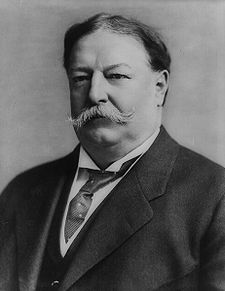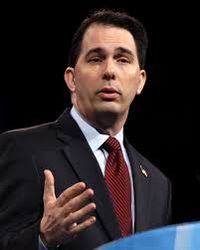
This means that Democratic policies, and priorities, are due to dominate your kids’ lives as the policies and priorities of Richard Nixon dominated my lifetime.
But this doesn’t mean that Democrats win all elections. Republicans have won both midterm elections of the Obama Era so far, and decisively. They control most state houses, most state legislatures, and both houses of Congress, standing in ever-firmer opposition to the changes President Obama has brought forward.
What we’re waiting for, politically, is validation of the Obama Thesis. We are waiting to see if Obama-ism can win without Obama on the ballot.
Until that happens, Washington pundits will stupidly insist that everything he’s stood for is a one-man phenomenon, his success a reflection of his unique personality and a political machine that answers only to him.

U.S. economy that brought Obama to power, we’ll be 8 years in. Add 8 to the 1968 Vietnam crisis that brought us Nixon and we’re at 1976, and the election of Jimmy Carter. Or, if you make Theodore Roosevelt the point of reference, and start at 1900, you’re at 1908, when his Progressivism was able to pass power to a chosen successor, William Howard Taft.
Listening to Hillary Clinton, the presumptive 2016 nominee and President Obama’s personal choice as successor, I’m most reminded, unfortunately, of Taft. The Taft of 1908 seemed a worthy successor to Theodore Roosevelt, who campaigned actively for him, but his speeches were as ponderous as he was, they were tendentious and uninspiring. They were like legal briefs, and in fact Taft admitted that he preferred being Chief Justice (as he later was) to any executive position. Hillary’s speaking style even pales next to that of her husband, the 42nd President.
Thus, Republicans like Scott Walker think they have an easy path to the Presidency. Be a little-known governor with a few big financial supporters, then run slightly to the left of the party, as Carter ran to the right of his party. Then govern from the right (as Carter governed from the left) once in office. Beat an uninspiring representative of the incumbent party narrowly, and then overturn everything his party stood for, as Carter tried to overturn Nixonism.

Let’s see what history says. U.S. Grant won easily in 1868, 8 years after Lincoln. As noted so did Taft, 8 years after Theodore Roosevelt ushered in William McKinley’s Progressivism. Franklin Roosevelt won re-election in 1940, but it was closer than it had been, and was mainly due to the looming reality of World War II. Then, in the most recent example, Carter beat Ford.
But why? Why did Carter beat Ford while other challengers failed to overturn a newly-installed set of myths and values delivering power? Why was Carter able to overturn the power of oil, outperform the Republican on television, and govern successfully against the express wishes of the people, as expressed by the polls taken during his Administration?
There were two reasons. First, Nixon’s impeachment. Second, Ford’s pardoning of Nixon, in other words Nixon’s impeachment. Without Watergate, Carter would not have stood a chance. Even if he had been nominated he would have gone down as hard as McGovern had in 1972. That’s because the country had shifted decisively in Nixon’s direction during his time in office, it had actually gone beyond Nixon, and the success of Ronald Reagan in riding that wave of public opinion is now obvious. Reagan validated and extended the Nixon Thesis of Conflict, placing some groups on the side of “America” as he defined it and placing others beyond the pale.

On the other hand, history shows that people who validate a generational thesis don’t usually do well. Reagan did, because his sunny disposition was a great contrast to Nixon and the economy cooperated. Harry Truman did, but he had negative coattails – he lost Congress twice just as Obama did – and beneath of the surface of his years McCarthyism boiled as the Tea Party has under Obama.
Taft’s case was tragic. Theodore Roosevelt eventually ran against him and brought in Woodrow Wilson, who in leaning against Progressivism brought in much of its program, including an income tax and the Federal Reserve. Grant was a good man who trusted people too much, allowing corruption to fester and, eventually, letting the South up from occupation in order for his successor, Rutherford B. Hayes, to be selected.

History, in short, doesn’t move linearly. Even American history isn’t a story of going from strength-to-strength. The fact that we’re in a new political era doesn’t mean it can’t be overturned in the short run, as Carter’s case proves. In general, it requires that the party out of power acknowledge its Thesis and lean against it, as Democrats finally did after the 1984 Mondale disaster.
The Republican Party has yet to do any of the work that would lead to a strong AntiThesis to the Obama Thesis of Consensus. They have yet to say yeah-but to any of this President’s works, even though his social progress, his economic progress, and his foreign policy progress remain generally popular. (You don’t really want four more wars – do you?) If anything, the rise of Elizabeth Warren shows that we’re now running ahead of Obama, as Reaganism ran ahead of Nixonism. The wind blowing from the right now blows from the left.
So, advantage Clinton. Nothing is certain. A heart attack, a car wreck, a bullet, or a cancer diagnosis could leave the Democrats with no one capable of winning next year. A sudden crisis could overturn the apple cart and leave us with President Walker (or even a third Bush). The Democrats badly need to replenish their bench, something only done when out of power – they’re stretched. We need some brave Millennials to step up to the political plate.
But all that will happen. In one way or another the trend is set, although as with the stock market political fortunes, and prices, will fluctuate. Looking back on the nation’s political life during my own lifetime, I am deeply humbled by America’s resiliency, and its impulse toward the good.

We’re not perfect, but today we are a more perfect union. Our foreign policy still leans too far toward militarism. Prejudice remains. Black and brown people are still far more likely than my kids to be killed by cops, or die young of other causes. But the direction my generation marched toward in the 1960s and early 1970s is the direction America is now marching in, the direction the whole world is marching in, and that won’t change.
More people have been raised from poverty in this century than in any century before. The technology to avert the climate crisis is entering the mainstream. I’m proud to say that the Internet I’ve covered for 30 years is a big part of that change.
A new course has been set, a new direction has been taken, and the world I leave my children, while more tenuous than the world I entered, is more hopeful than ever before. That is the change I believe in, and that is the change that is here.










